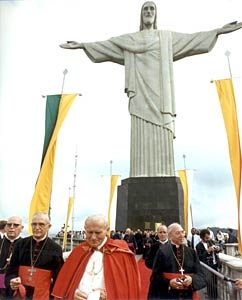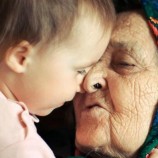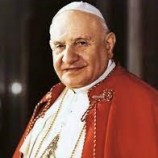The more time goes by, the more our eyes widen at the remarkable figure of Karol Wojtyla, the Polish Pope, now beatified and on the pathway to canonisation. Undoubtedly, the 20th century brought us remarkable spectacles of Holiness, from Mother Teresa of Calcutta, to Brother Roger Schütz and John Paul II.
Each saint manifested one or more facets of the virtues of Christ. The love for the poor flares in Teresa. The call for unity echoes in Br. Roger. In John Paul II, the diamond is multi-faceted. God outdid himself when lapidating this one. His missionary impulse, brightness of intellect, doctrinal loyalty, pedagogical dedication, universal vision—numerous features of Christ, teacher and Pastor. It is in suffering, however, that the Blessed John Paul adheres most to Christ. Among his pains, the cross of Catholic University…
Wojtyla expressed gratitude for his time spent at the University: “For many years I myself was deeply enriched by the beneficial experience of university life: the ardent search for truth and its unselfish transmission to youth and to all those learning to think rigorously, so as to act rightly and to serve humanity better.—Ex Corde Ecclesiae, 2.
Equally, he prized the work of the Catholic lecturers “Their task as academics and scientists, lived out in the light of the Christian faith, is to be considered precious for the good of the Universities in which they teach. Their presence, in fact, is a continuous stimulus to the selfless search for truth and for the wisdom that comes from above”, Idem.
Upon seeing, here and there, rationalism and secularism invading spaces that should typically be ecclesial, John Paul II stressed the centrality of Christ in Catholic University: “Aided by the specific contributions of philosophy and theology, university scholars will be engaged in a constant effort to determine the relative place and meaning of each of the various disciplines within the context of a vision of the human person and the world that is enlightened by the Gospel, and therefore by a faith in Christ, the Logos, as the center of creation and of human history.” Thus is the Pope’s lesson: Without Christ at the center, the Catholic University turns eccentric, out of place.
In reality, the desire and the apparent necessity to obtain approval and recognition of governmental authorities eventually induced the Catholic establishments to accept teachers entirely foreign, if not hostile, to the Church, its doctrine and worldview. They went on counting diplomas, titles, doctorates, published texts, but not their alignment with faith and doctrine.
In item 27 of the Apostolic Constitution Ex Corde Ecclesiae, dated August 1990, John Paul II wrote: Every Catholic University, without ceasing to be a University, has a relationship to the Church that is essential to its institutional identity. As such, it participates most directly in the life of the local Church in which it is situated; at the same time, because it is an academic institution and therefore a part of the international community of scholarship and inquiry, each institution participates in and contributes to the life and the mission of the universal Church, assuming consequently a special bond with the Holy See by reason of the service to unity which it is called to render to the whole Church.”
This is not, of course, about mere sympathy or an educated air of good relations, but it is a question of a sense of belonging and affiliation. He proceeds: “One consequence of its essential relationship to the Church is that the institutional fidelity of the University to the Christian message includes a recognition of and adherence to the teaching authority of the Church in matters of faith and morals. Catholic members of the university community are also called to a personal fidelity to the Church with all that this implies. Non-Catholic members are required to respect the Catholic character of the University, while the University in turn respects their religious liberty,” Idem.
Karol Wojtyla has gone. Certainly he will be praying beside the throne of the Lamb. But I doubt that he has ceased to suffer…
Related Articles
















